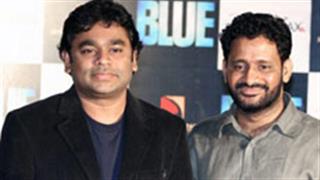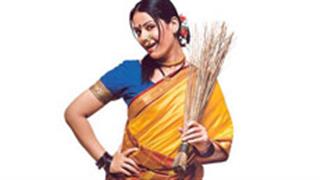One of the myriad characters in debutant director Ranjan Shandilya's Myoho who proudly rapes a woman in the 1930s claiming he is a 'Man' and therefore entitled to his share of gender subjugation, is reborn a eunuch in Mumbai 70 years later.
If only the Karmic cycle was so fair in its dealings, we wouldn't have little children being gunned down by a madman in an American kindergarten school. Veteran actor Kanwaljeet Singh who plays a kind of thinker, philosopher, healer and guide in Myoho says, all that goes wrong in civilization is part of a cycle where all that goes right would inevitably follow from the wrong.
Hence in Myoho a Sufi singer from the 1930s is reborn in presentday Mumbai as a struggling singing aspirant moonlighting as an auto driver who by chance, meets a kind music-contest coordinator. She ends up giving the singer a platform to do what he was born to.
Destiny, nemesis, karma and caprice comre together on Myoho which starts during the devastating earthquake in Bihar in 1934 and then transposes the same characters to Mumbai's 26/11.
Too ambitious for its own good, here is a film that has deep flaws but is ultimately a heartwarming and moving study of Man's inextricable bond with the karmic cycle. If cinema is food for thought then Myoho is a veritable feast for the senses. A famished unfinished feast, it moves somewhat strenuously and urgently through two time zones to tell us with chilling eloquence that what goes around must come around.
There is a gallery of capable actors, Yashpal Sharma (playing an autocratic zamindar in 1934 and a Maharashtrian chauvinist in 2008), Raj Singh Chaudhary (an innocent aetheist in the past and a cynic in the present), Brijendra Kala (a traiter and a swindler in the past and a man losing his son to disease in the present) all of whom lend a tentative credibility to what could have been an exercize in selfindulgent time-passage ham-fest.

The relatively unknown Anil Monge's track as the aspiring singer is specially heartwarming.
Though rough at the edges and discernibly uneven in pace undoubtedly Myoho is the surprise film of 2012.
The director Ranjan Shandilya says the film reflects his passion for various artforms. `Myoho was born from my belief that cinema, painting, novels are all reflections of the society I live in, and also that all these different forms of expression should be inspired by life.
Unfortunately the time we live in has become so gloomy, people are distressed, angry, they've have forgotten to love. One common denominator for all of us is that at some point we all have felt, 'Life is unfair. . !! Why Me. . ??. . Mere saath hi aisa kyun hota hai. . ??
Kuch logo ko bina mehanat kiye sab kuch kyu mil jaata hain. . . kuch logon ne kuch nahi kiya phir bhi achche kyun nahi lagte. . ?? Aur kuch log pehli mulaqat mein hi itne achche kyun lagte hain??' These were the questions and MYOHO is an attempt to find the answer. `
About the two time zones Shandilya says, `Since the dawn of humanity, problems have only changed their face and have adjusted the mask to suit the time. However at the core it all remains the same. This is because people don't change. They remain the same.
I knew the problem but I was finding the answers and the answer was "LOVE & COMPASSION". The choices I make in my life are going to determine my future. This cannot happen without the understanding that every action has an equal and opposite reaction.
Without seed there can be no fruit. This I believe gives immense freedom. We are the creator of our destiny. But freedom has no meaning without responsibility. `
Why 26/11 as a backdrop and why the esoteric title? One wonders!

Avers Shandilya, `Nothing can happen in isolation, our actions and reactions have to come through our interaction with the society. Like there is an individual karma there is also karma of a nation. It is not about one dream or one character. We all depend on each other for realizing our dreams. It is about the law, quite mystic in nature which governs the entire universe. It called MYOHO.
My film's setting had to identifiable and something which could have connected to the audiences immediately. We learn from our own sufferings and can only speculate and analyze others's sufferings.
When I was writing the script I came across the Buddhist philosophy which was exactly the same as I had written. I decided then to name the film MYOHO despite of opposition from almost everyone. I feel MYOHO is the most apt tittle for the film.
Hopefully, someday I will be able to write a script which will tell how even karma is an illusion of ego, but I guess there is still time for that. `




















